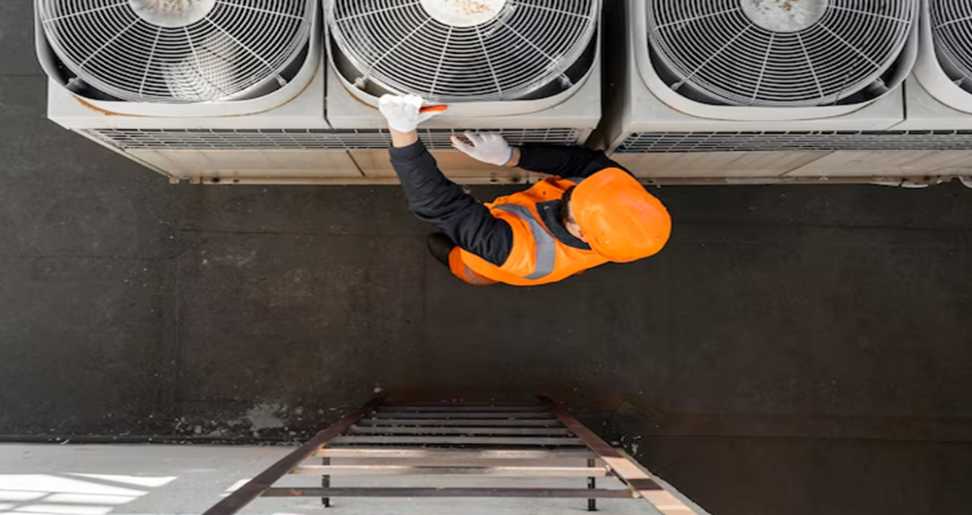As energy costs rise, understanding the efficiency ratings of your Heating, Ventilation, and Air Conditioning (HVAC) system becomes increasingly important. These ratings providing a valuable insights into and understand how effectively your system converts energy into heating or cooling power. Here’s a breakdown of the key efficiency ratings you’ll encounter when evaluating HVAC systems.
The Alphabet Soup of Efficiency
- SEER (Seasonal Energy Efficiency Ratio): This rating applies to air conditioners and measures the ratio of cooling output (in BTUs) to energy consumption (in kilowatt-hours) over a typical cooling season. A higher SEER rating indicates a more efficient AC unit. Generally, SEER ratings in the United States range from 13 to 25, with higher numbers signifying greater efficiency and potentially lower energy bills.
- HSPF (Heating Seasonal Performance Factor): This rating applies to heat pumps, which can function for both heating and cooling. HSPF measures the heating output of a heat pump over a typical heating season compared to the energy consumed. Similar to SEER, with a higher HSPF rating indicates a more efficient heat pump in heating mode. In the United States, HSPF ratings typically range from 7 to 10.
- AFUE (Annual Fuel Utilization Efficiency): This rating applies to furnaces and boilers and reflects the percentage of fuel (gas, oil, etc.) that is converted into usable heat. A higher level of AFUE rating indicates a more efficient furnace or boiler, wasting less fuel and potentially reducing your heating costs. Residential furnaces in the United States typically have AFUE ratings between 80% and 98.7%, with higher numbers signifying greater efficiency.
Additional Factors to Consider
While efficiency ratings are crucial, here are some additional factors to keep in mind when evaluating HVAC systems:
- System Size: Choosing the right size unit for your home is essential. An oversized system will cycle on and off more frequently, reducing efficiency. Conversely, an undersized system will struggle to maintain desired temperatures and operate inefficiently. Consider consulting with qualified hvac services professionals to determine the appropriate size unit for your needs.
- Installation Quality: Even the most efficient HVAC system can be compromised by improper installation. Ensure your HVAC system is installed by qualified technicians to maximize efficiency and performance.
- Maintenance: Regular maintenance by qualified professionals can help maintain optimal efficiency and prevent minor issues from escalating into major problems that could significantly impact efficiency.
Investing in Efficiency
While a higher level of efficiency and HVAC system might be have a higher upfront cost, the long-term benefits are significant:
- Reduced Energy Costs: A more efficient system consumes less energy, translating to lower utility bills and significant cost savings over the lifespan of the unit.
- Environmental Impact: Also going to reduce the energy consumption that means it is a smaller form of carbon footprint and a contribution to a more sustainable future.
- Improved Comfort: Efficient systems provide consistent and reliable heating or cooling, ensuring year-round comfort in your home.
- Increased System Lifespan: Regular maintenance and choosing an efficient system can extend the lifespan of your HVAC unit, delaying the need for costly replacements.
Remember, partnering with qualified heating services professionals can guide you throughout the selection process and ensure your HVAC system operates at peak efficiency for years to come.
Conclusion
Understanding HVAC efficiency ratings empowers you to make informed decisions when selecting a new heating or cooling system. By considering these ratings alongside other factors like system size, installation quality, and maintenance needs, you can choose a system that optimizes efficiency, comfort, and cost-effectiveness for your home. So, embrace energy-efficient solutions and enjoy a comfortable and cost-effective living environment all year round!
Have A Look :-
- Vela Scarves- Unveiling Their Elegance
- Top 4 Famous Head Scarves For Women
- Check Out Some Of The Famous Tory Burch Sunglasses

